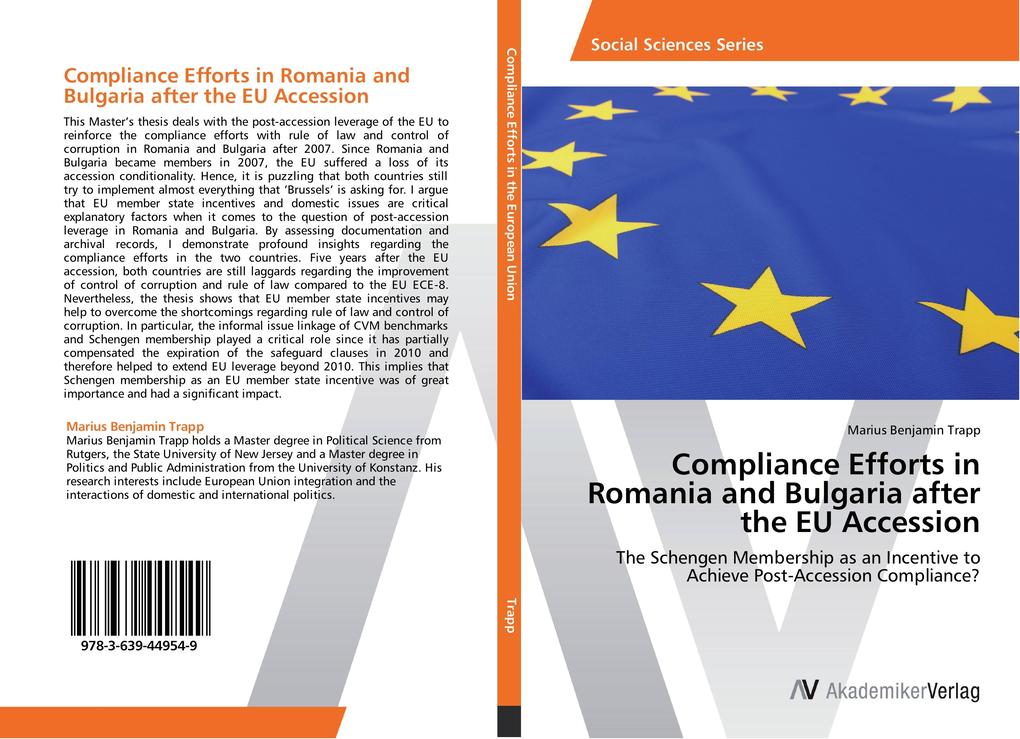
Zustellung: Mo, 14.07. - Do, 17.07.
Versand in 5 Tagen
VersandkostenfreiBestellen & in Filiale abholen:
This Master s thesis deals with the post-accession leverage of the EU to reinforce the compliance efforts with rule of law and control of corruption in Romania and Bulgaria after 2007. Since Romania and Bulgaria became members in 2007, the EU suffered a loss of its accession conditionality. Hence, it is puzzling that both countries still try to implement almost everything that Brussels is asking for. I argue that EU member state incentives and domestic issues are critical explanatory factors when it comes to the question of post-accession leverage in Romania and Bulgaria. By assessing documentation and archival records, I demonstrate profound insights regarding the compliance efforts in the two countries. Five years after the EU accession, both countries are still laggards regarding the improvement of control of corruption and rule of law compared to the EU ECE-8. Nevertheless, the thesis shows that EU member state incentives may help to overcome the shortcomings regarding rule of law and control of corruption. In particular, the informal issue linkage of CVM benchmarks and Schengen membership played a critical role since it has partially compensated the expiration of the safeguard clauses in 2010 and therefore helped to extend EU leverage beyond 2010. This implies that Schengen membership as an EU member state incentive was of great importance and had a significant impact.
Produktdetails
Erscheinungsdatum
07. September 2012
Sprache
englisch
Seitenanzahl
124
Autor/Autorin
Marius Benjamin Trapp
Verlag/Hersteller
Produktart
kartoniert
Gewicht
203 g
Größe (L/B/H)
220/150/8 mm
Sonstiges
Paperback
ISBN
9783639449549
Entdecken Sie mehr
Bewertungen
0 Bewertungen
Es wurden noch keine Bewertungen abgegeben. Schreiben Sie die erste Bewertung zu "Compliance Efforts in Romania and Bulgaria after the EU Accession" und helfen Sie damit anderen bei der Kaufentscheidung.








